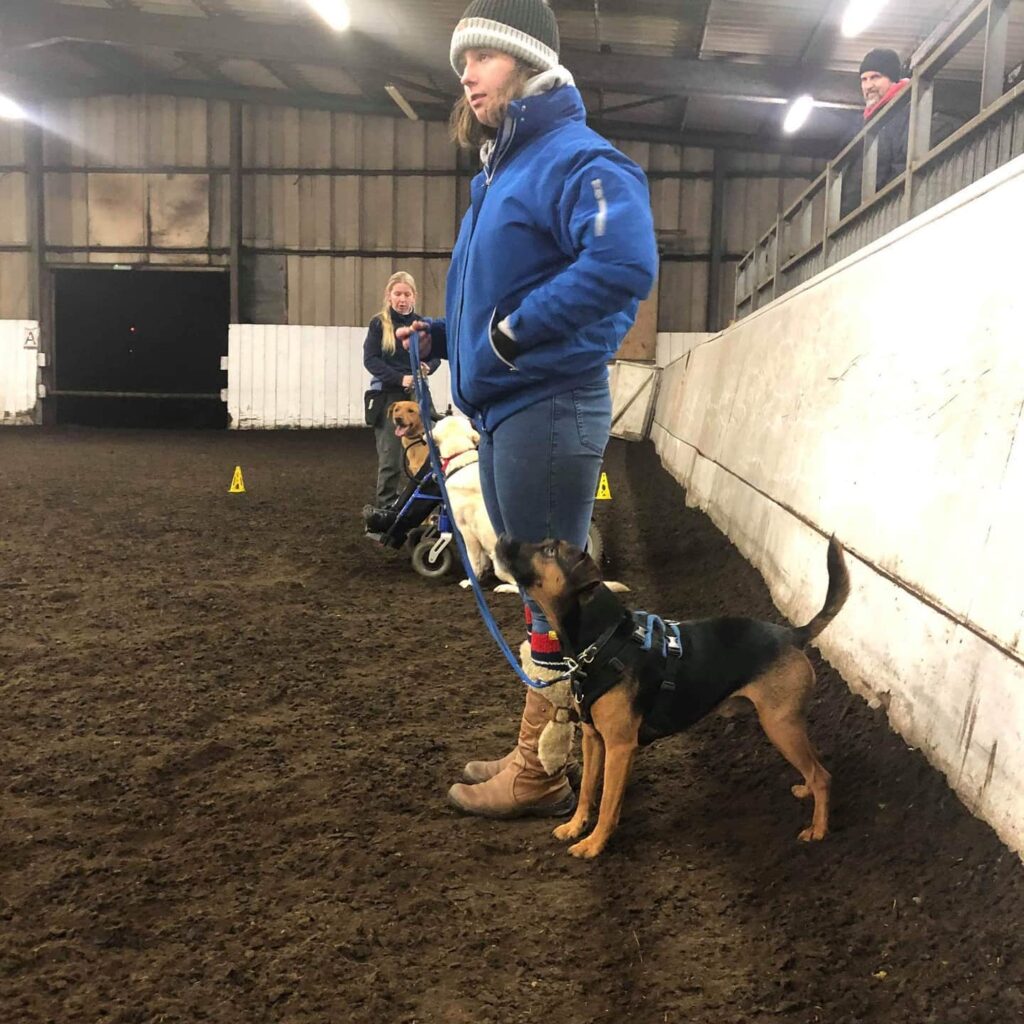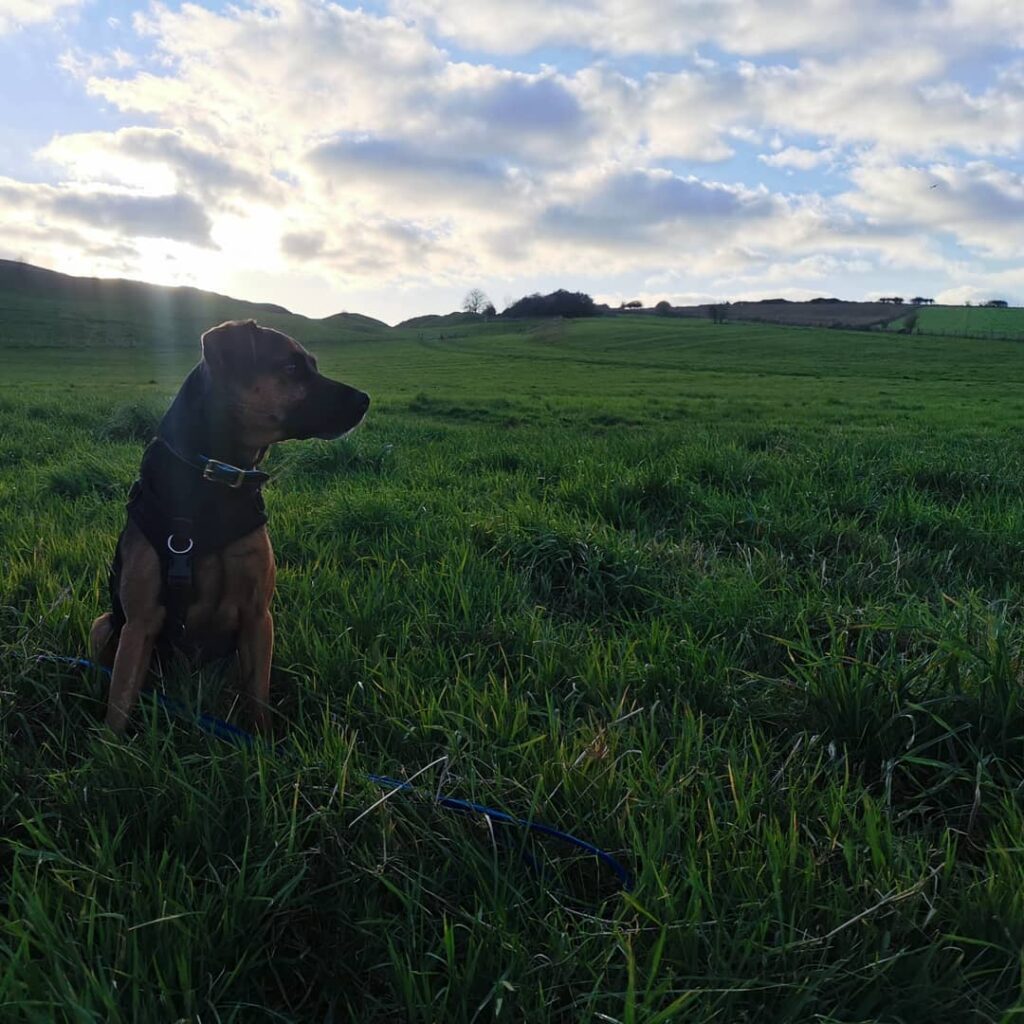“A student that doesn’t allow her dog to sniff often feels she’s caught in a constant battle between winning the dog’s focus versus losing the dog to the environment.” – Leslie McDevitt, “Uncontrol Unleashed” Page 51.

This is exactly how I felt with Pumba when I first started training him. I felt that there were only the two extremes where he was 100% focused on me or 100% focused on the environment we were in. Obviously knowing what I know now, I know that you can shape focus and if you get 0.1 second of focus, that’s more focus than you had previously and is worth celebrating! Once you’ve got that 0.1 second of focus, you can start asking for 0.2 seconds and so on. This method allowed us to go from 0 focus to five minutes of focus seemingly overnight. I know it wasn’t overnight and the fact that I spent days, weeks, months, and years reinforcing all of those small snippets of focus is what has led to our success out and about today. But when I first started I felt like I couldn’t let Pumba focus on the environment at all because then he wasn’t focusing on me! Very few trainers were telling me about how both Pumba and I could get what we want and improve our work as a result of that.
A huge aspect of this success was utilising the Premack Principle, which McDevitt talks a lot about in “Control Unleashed”. I’ve written about Premack Principle before if anyone would like to read about it here. Once you realise that there is a continuum of focus and losing your dog to the environment, you start to realise that both you AND your dog can get what you want. I have OCD and as a result can be a bit (ahem, a lot) of a control freak about many aspects of my life and when it comes to training my dogs, that remains true! Learning to let go and actually let my dog make the decisions has been one of the hardest things I’ve done in my whole dog training journey. We have a long history of my poor decisions leading to my boys making poor decisions. Even today I’m occasionally petrified of allowing either of my dogs to make decisions in certain situations and I have to fight to control my desire to micromanage.

Premack Principle is especially helpful when you utilise inherent behavioural needs that dogs have into your training programme. The following are breed generalisations and will not be true for individual dogs but for the sake of ease in a blog post I’m going to generalise. I own terriers and they have behavioural needs to dig, snuffle around in bushes and tend to perform parts of the predatory action sequence that include possess, grab bite, shake to kill and dissect. I have utilised certain aspects of this to reinforce fantastic choices on their part. For example, if I find a mole hill on a walk that my dogs haven’t yet noticed, I wait for them to look at me or move in my direction, mark and then when they get to me point them to the mole hill and encourage them to dig. They’ll usually spend upwards of 15 minutes digging and thoroughly enjoying themselves which is of far more reinforcement value than a bit of kibble is! (I do always stamp around either side of the mole hill before the dogs come over to encourage any small critters to scram first!) Generally, because they’ve had an opportunity to perform the digging behaviour, they feel less of a need to dig in order to find animals that I don’t want them going after.
Viewing these behaviours as a need is a good way to view them because we begin to appreciate that the need grows and shrinks with the occurrence of the behaviour. A dog that has just dug its way to China probably doesn’t need to dig as much again. If you’ve spent the whole day binge watching your favourite Netflix series, the need to spend another day watching it is severely reduced. A child in class who has had time or a group activity to talk and interact with their friends is less likely to feel the need to talk to them when they need to be listening or focusing on their work. By providing outlets for these behaviours, instead of constantly trying to control them, you inherently reduce the need for an animal to perform them in the first place.
By using Premack Principle and understanding that in order to get what I want, I had to help my dog get what he wanted I made a huge first step in learning to let go. Pumba, and more recently Timon, consistently surprise me with the good decisions they’re able to make when I set all of us up for success. Dog training isn’t about a win or lose situation, it’s about setting up wins for everyone involved. The smaller those wins are at each stage, the more wins you collect and suddenly you’ve got massive wins left right and centre and you’re achieving things that you never thought would be possible.
What situations do you experience where you feel like the choice is either you or your dog winning and not both of you? Can you think of ways that the Premack Principle can help your life become easier? Let me know down below!
